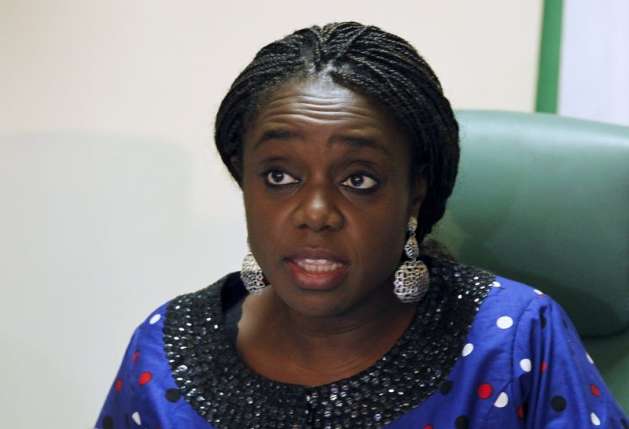International investors showed a healthy appetite for Nigeria’s first Eurobond since 2013, offering the country more money than it wanted to borrow.
Nigeria’s US$1 billion Eurobond issue was approximately eight times oversubscribed, with orders in excess of US$7.8 billion, compared to a pre-issuance target of US$ 1.0 billion, demonstrating strong market appetite for Nigeria. This is despite continued volatility in emerging and frontier markets and shows confidence by the international investment community in Nigeria’s economic reform agenda.
Speaking on the success of the offer, Kemi Adeosun, Nigeria’s Minister of Finance, said that resetting the Nigerian economy would take more than a few changes in policy.
“To lay the foundation for Nigeria’s future, we must correct the historic underinvestment in infrastructure that has limited our growth to a few sectors. Our reform programme is firmly aimed at resetting the Nigerian economy. The government’s debt strategy is an essential part of this process. Today, our debt profile is un-balanced. We borrow heavily domestically, with too short a tenure, and at a high cost.
“The impact of this is that we spend too much on interest and we crowd out the private sector from borrowing to fund their investment plans. This debt structure does not support our long term growth ambitions, and so it must be amended. We need longer term and cheaper finance to support the infrastructure investments we must make.”
Adeosun said that the Eurobond issue is the first step in the process of raising the much needed finance to invest in infrastructure.
“A 15-year programme at 7.875 percent coupon, and a level of investor interest that demonstrates the markets on-going belief in the reform plans of this administration and the strong fundamentals of the Nigerian economy.”
Nigeria’s Eurobond offering attracted significant interest from leading global institutional investors. The Notes will be admitted to the official list of the UK Listing Authority and available to trade on the London Stock Exchange’s regulated market.
The Eurobonds will bear interest at a rate of 7.875 percent and will mature on 16th February 2032 with a bullet repayment of the principal. Analysts had expected that the bond would be priced at about 8 percent but overwhelming demand pushed the price lower.
Nigeria intends to use the proceeds of the Notes to fund capital expenditure in the 2016 budget. The Eurobond represents the Republic’s third Eurobond issuance, following issuances in 2011 and 2013.
Nigeria will apply for the Notes to be eligible for trading and listed on the Nigerian FMDQ OTC Securities Exchange and the Nigerian Stock Exchange.
The pricing was determined following a roadshow led by Kemi Adeosun, the minister of Finance, Senator Udoma Udo Udoma, minister of Budget and National Planning, Godwin Emefiele, governor of the Central Bank of Nigeria, Abraham Nwankwo, the director-general of the Debt Management Office (DMO) and Ben Akabueze, the director-general of the Budget Office, to key global financial centres.
“Nigeria is implementing an ambitious economic reform agenda designed to deliver long-term sustainable growth and reduce reliance on oil and gas revenues, while reducing waste and improving the efficiency of government expenditure.
“At the heart of the agenda is a commitment to invest in developing Nigeria’s infrastructure through a target 30 percent annual budget commitment to capital expenditure. We are establishing the building blocks for long-term growth and making the hard decisions that must be made to reset our economy appropriately” Adeosun explained.
Also commenting on the Notes’ pricing, the DMO director-general, Abraham Nwankwo, who packaged the loan deal on behalf of the Nigerian government said “Nigeria is delighted to have successfully priced its third Eurobond issue. We have successfully extended the tenor of our borrowing programme in the international capital markets to 15 years, at a price that reflects belief in the quality of Nigeria’s cash flows and government.
“The Eurobond is the latest step in a broader debt strategy designed to significantly re-balance our debt profile towards longer term financing and reduce the burden of interest on our annual budget.”
This is the third successful Eurobond deal packaged by the DMO since 2010. Nigeria also has a $500 million 10-year Eurobond maturing in 2023 with a current interest rate of 6.72 percent.
The success of Nigeria’s Eurobond issue will come as a significant relief to the government, as there were concerns that illiquidity in the foreign exchange market could impact negatively on subscription to the bond. This success will also boost the government’s plans to borrow US$30 billion over the next three years from both multilateral lending agencies and capital markets.
The government is already targeting another US$1 billion loan from the World Bank, after it launches its Economic Recovery plan by the end of February.
Also an additional US$400 million loan is expected from the African Development Bank (AfDB) which had agreed in 2016 to lend Nigeria US$1 billion. It disbursed US$600 million of the agreed loan in 2016 and had said it would release the balance of US$400 million only after see Nigeria’s economic growth and recovery plan.
